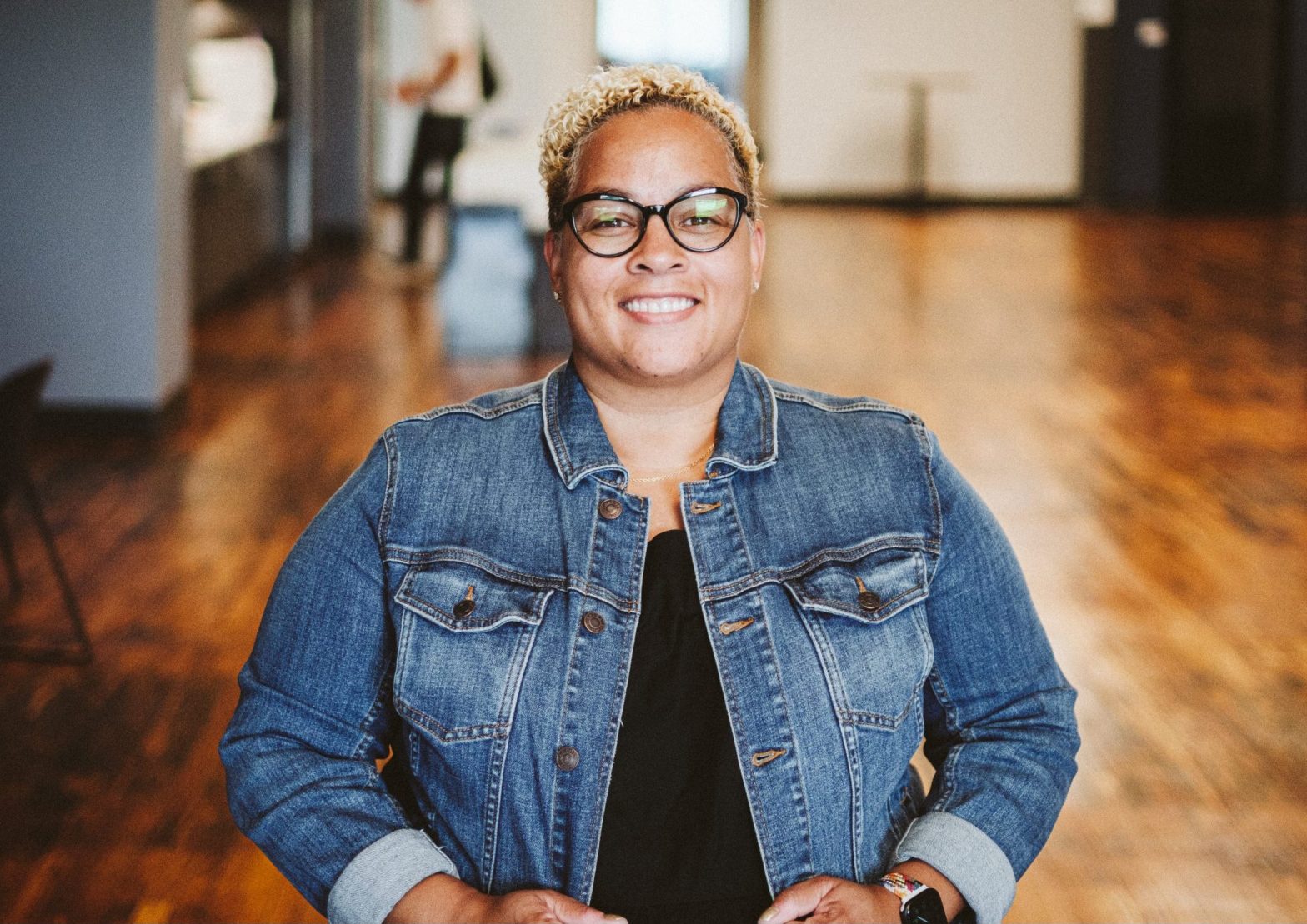WillowTree has always been sort of an enigma: It used to have a reputation for being what Kelli Palmer calls “this tech firm in the Downtown Mall where everyone wore matching hoodies.” But the 14-year-old, rapidly expanding tech company is actually “a digital consultancy” that “works with businesses to strategize around and to build their digital landscape,” including apps, software, and websites.
Since starting her new job as WillowTree’s chief diversity officer, Palmer has begun developing a North Star program for diversity, equity, and inclusion, which she hopes will set an example for other companies.
“That means doing this work in ways that not just impact the way we think about talent and the people who work here, but also how we live in community,” she says.
Palmer aims to look at everything through the lens of ESG—environmental, social, and governance—with a strong emphasis on WillowTree’s environmental impact. She believes businesses have an obligation to protect and conserve the environment, and plans to expand sustainability efforts at the tech firm, which is a member of the Community Climate Collaborative.
“If we’re thinking like a business, we want to have employees, and they need to have an earth that they can exist on,” she says. “If you and I and our neighbor down the street and other people recycle, and the business recycles, then we’re in a space where we can make an impact.
Palmer earned a bachelor’s degree in elementary education from Elon University (where she now serves on the board of trustees), a master’s degree in counselor education from Wake Forest University, and a Ph.D. in higher education administration from UVA. She’s also received graduate certificates from Boston College and Harvard University, and has studied at Oxford University.
As a Black woman in tech, Palmer is in an extremely underrepresented minority: Black women account for only 3 percent of all women in tech. When she graduated from college and entered the professional space, Palmer “didn’t often question whether I should be there,” but did wonder “how effective I was going to be able to be if other people didn’t want me there.” Palmer soon realized she had to be “willing to be the person that walks up and extends my hand, even if the other person is not walking towards me with that same gesture.”
“It’s hard at first,” she acknowledges. “Then over time, it’s like, ‘Oh, you’re gonna underestimate me too? Here I come.’”
Palmer encourages women interested in STEM to “do it all, go to a hackathon and code, try it even if you don’t know how to do it.” Citing Malcolm Gladwell’s 10,000 hours thesis, she emphasizes that nobody becomes an expert overnight—consistency is key.
“If you’re the only girl, so what?” she says. “If it’s interesting to you, keep showing up.”
